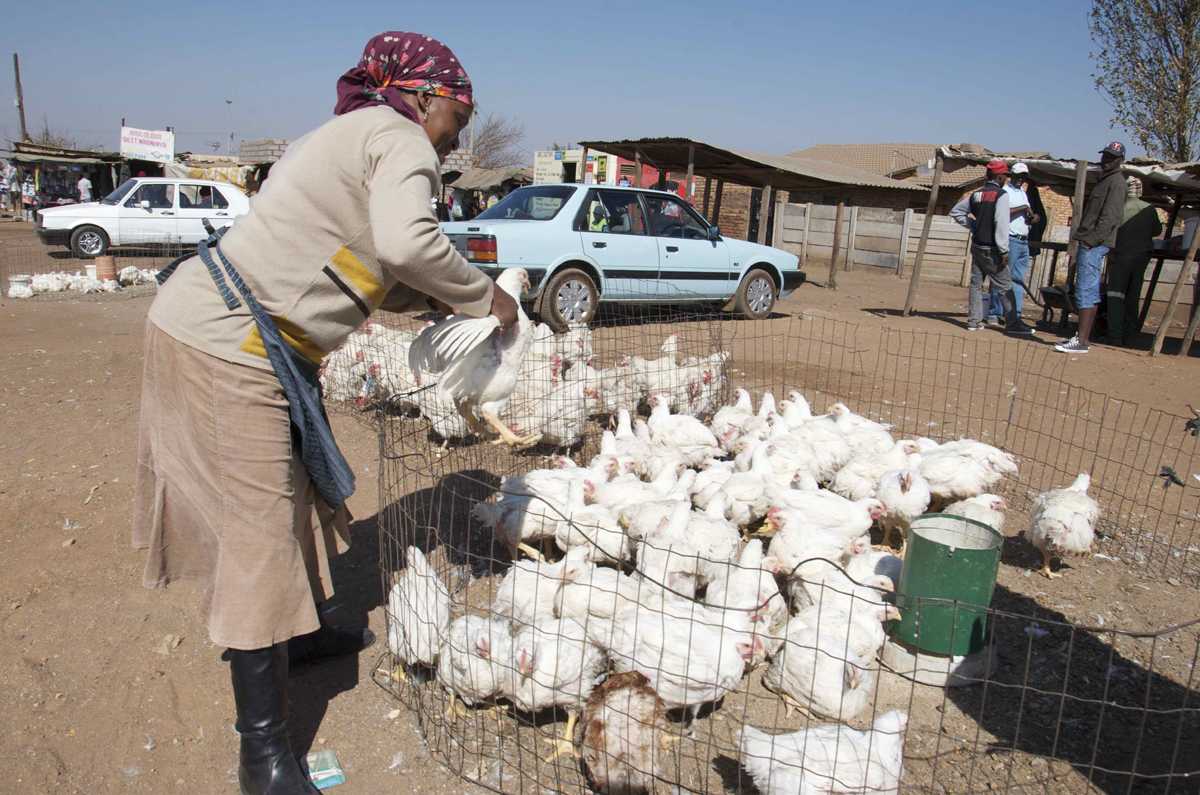One Health Program
South Africa Regional Global Disease Detection Center

The One Health Program was established to enhance South Africa’s (SA) capacity to detect and respond to zoonotic disease threats that may result in significant morbidity and mortality in humans. The One Health Program aims to strengthen surveillance and research of zoonotic diseases of public health importance with the potential to cause significant morbidity and mortality in humans and animals and ecological factors such as animal and insect vectors involved in their emergence and spread. The One Health Program works to strengthen collaboration between the human and veterinary health role players in SA, including the National Department of Health (NDoH), Department of Agriculture Forestry and Fisheries (DAFF), human and veterinary health institutes, academic researchers, and public and private clinicians and veterinarians as a link to US-based and international agencies.
Program Background
Key Partners
- National Institute for Communicable Diseases of the National Health Laboratory Service, South Africa
- South African National Department of Health (SANDOH)
- National Institute for Communicable Diseases (NICD) of the National Health Laboratory Service (NHLS)
- University of Pretoria
- US Department of Defense’s Threat Reduction Agency (DTRA) Cooperative Biological Engagement Program
- US Department of Agriculture (USDA)
- CDC’s National Center for Emerging, Zoonotic and Infectious Diseases
One Health is the “collaborative effort of multiple disciplines working locally, nationally and globally to attain optimal health for people, animals and the environment”, and brings together human, veterinary and environmental role players locally and internationally in accordance with the World Health Organization. At CDC, the One Health Program focusses on zoonotic diseases of public health significance that are outbreak prone and may result in significant human morbidity and mortality both locally and internationally. Zoonotic diseases are one of the targets of the CDC Global Health Security (GHS) initiative and One Health offices have been established in 12 countries. GDD supports training of veterinary and human health officials to detect, respond and control zoonotic diseases according to the GHS initiatives and strengthen laboratory surveillance and research programs that can serve as backbone for enhanced surveillance.
Program Focus
- GDD aims to facilitate collaborative efforts in research and surveillance between public health and academic researchers and promote dialogue between human and veterinary health governmental officials and contribute to national policies on control of zoonotic diseases of public health importance.
Key Challenges
- Linking surveillance and research activities across the public, private and university entities in human and animal health.
- Promoting dialogue and joint surveillance activities between human and animal health and enhance timely reporting.
- Promoting zoonotic disease research and surveillance in humans and animals that will create burden of disease data for humans or animals, improving our ability to detect emerging diseases and respond to outbreaks.
Priority Zoonotic Diseases
Endemic and cross boundary diseases that have a significant potential to affect human health locally and the potential to spread globally and not addressed in other programs that are present and of concern in South Africa include:
- Viral: Endemic Zoonotic viruses with animal or insect vectors including *Rabies and rabies related viruses), bat and rodent borne viruses (filoviruses (Marburg and Ebola), arenaviruses (Lujo) , endemic arboviruses (*Rift Valley Fever; *Crimean Congo hemorrhagic Fever; *West Nile virus and other less well studied endemic arboviruses that are outbreak prone and associated with severe disease in humans and animals); *Avian Influenza.
- Bacterial: *Brucellosis; Rickettsial diseases; Anthrax; Coxiella burnetti, Leptospirosis; bovine tuberculosis; foodborne pathogens such as Salmonella
- Other: WHO Neglected diseases including cysticercosis; schistosomiasis; toxoplasmosis; Cryptosporidium
* pathogens currently addressed through GDD One Health funded programs
Opportunities for Integration and Advocacy
- Establishment of a Centre for Zoonotic Research at the University of Pretoria Medical School in collaboration with the Veterinary and Natural Science faculties that focus on zoonotic diseases of public health significance and identification of emerging zoonotic diseases through pathogen discovery.
- Opportunity to combine studies in One Health between the University of Pretoria Faculties of Health and Veterinary Medicine.
- Opportunities to facilitate One Health cooperation workshops between DAFF, DOH and researchers in public health institutes and academia using prioritization tools of CDC and the US Department of Agriculture (USDA)
Recent Achievements and Activities
- Director for One Health Program was appointed in March 2014.
- Ongoing participation in the monthly Multisectorial National Outbreak Response Team (MNORT) and in the Ebola MNORT subcommittee for preparedness and response.
- Ongoing participation in the Notifiable Disease, Anthrax and One Health Policy writing group for the NDoH
- Facilitation of meetings between DAFF, DOH, NICD, and University of Pretoria with the USDA and DTRA to support implementation of the Pathogen Asset Control program at Kruger National Park.
- Participation in 1) One Health workshop at the Pretoria Zoo, February 2014, 2) One Health Stakeholders meetings with DOH and WHO, August 2014 and 3) an equine export workshop with the Equine Research Centre, DAFF and stakeholders in the horse industry and facilitate follow up meetings with USDA.
- Local conferences and scientific meetings:
- Speaker at the Faculty of Veterinary Science and SA Equine Veterinary Association Conference, Stellenbosch February 2015
- Oral presentation at the South African Society for Veterinary Epidemiology and Preventative Medicine, August 2014, Port Elizabeth
- International conferences and scientific meetings:
- Poster at the International Conference on Infectious Diseases (ICID), March 2014
- Oral presentations at the European Viral Zoonoses Conference, St Raphael, France, May 2014
- International Emerging Infectious Disease Meeting, Rocky Mountain Labs, Montana, July 2014
- International Meeting on Emerging Diseases (IMED) Austria, October 2014
- African Network for Influenza Surveillance and Epidemiology (ANISE) Cape Town, December 2014
- Page last reviewed: June 2, 2015
- Page last updated: June 2, 2015
- Content source:
Global Health
Notice: Linking to a non-federal site does not constitute an endorsement by HHS, CDC or any of its employees of the sponsors or the information and products presented on the site.


 ShareCompartir
ShareCompartir